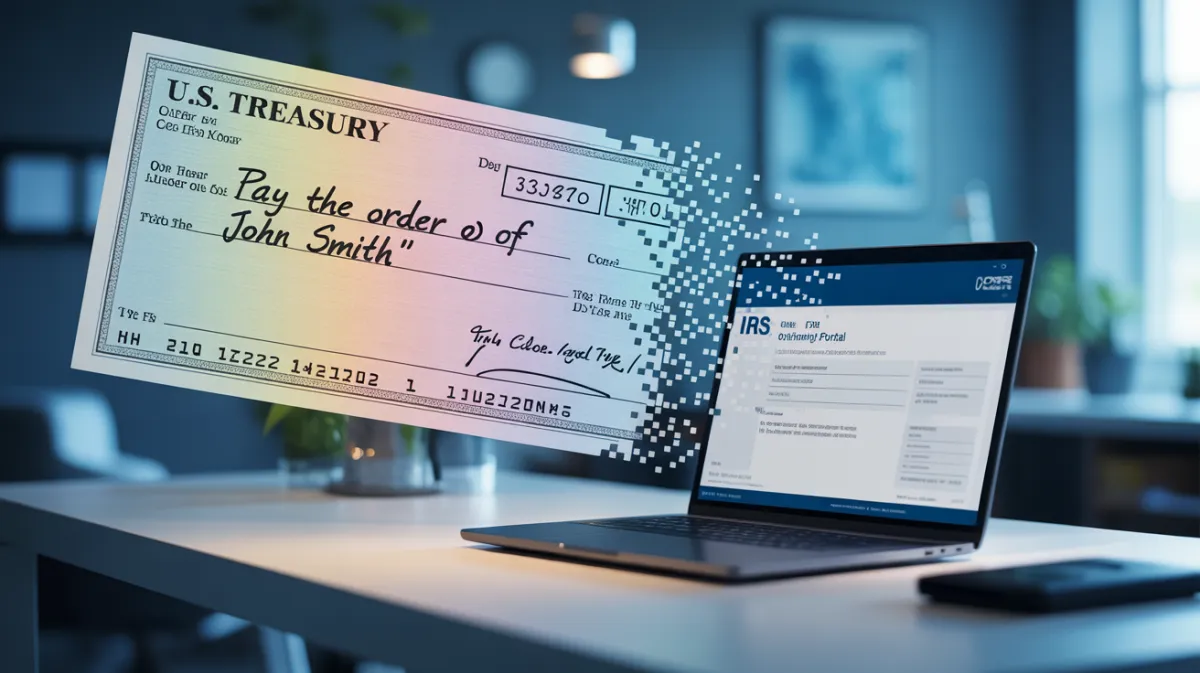Contact Us
office@taxsherpa.com
(678) 944-8367
Follow Us:
Our Blogs
On our blogs you will find our Tax Sherpa Stories series as well as additional posts covering all manner of tax topics. Some items are timely as there are multiple tax filing dates throughout the year and some items are important larger concepts.

IRS Online Payments Going Mandatory – What Solopreneurs Must Know
📬 IRS Says Goodbye to Paper Checks: How to Handle the 2025 Shift to Online Tax Payments
💡 What’s Changing: IRS Moves to 100% Digital Payments in 2025
Starting September 30, 2025, the IRS will stop issuing most paper tax refund checks. A new Executive Order mandates all federal payments, including tax refunds and estimated tax payments, be made electronically.
That means if you're used to getting a refund by check or mailing in your tax payments, it’s time to switch to IRS online payments, like Direct Pay, Pay1040, or even IRS.gov account-managed debit card systems.
🧾 Why Go Fully Digital?
The IRS cites three main reasons for this change:
💸 Cost Efficiency: Paper checks cost the government $657 million in FY 2024.
🛡️ Fraud Reduction: Paper checks are 16x more likely to be stolen or misused.
⚡ Speed & Simplicity: Electronic refunds arrive faster.
This is more than just a software update, it's a full overhaul of how tax payments and refunds are processed.
👥 Who This Impacts Most: Solopreneurs, Small Biz Owners & Freelancers

Entrepreneurs already juggle dozens of responsibilities, adding another layer of IRS digital account setup, bank verification, and online refund management isn't exactly welcome.
Key concerns for solopreneurs include:
👵 Tech Barriers for Elderly & Underbanked: Many filers may struggle to set up and manage digital accounts.
🔓 Identity Theft from Prepaid Cards: These cards can be exploited by fraudsters filing fake returns.
⛔ No Easy Paper Refund Option: You'll need to request an exemption to get one—and it's not guaranteed.
🧭 How to Prepare for IRS Online Payments in 2025
🔗 1. Set Up or Confirm Your IRS.gov Account
Visit irs.gov/account to create or verify access. This is essential for tracking your:
Refund status
Payment history
IRS install agreement online payments
Quarterly payment schedules
Use two-factor authentication for added security.
💳 2. Choose Direct Deposit or Credit Card Payments
Avoid surprises by switching to IRS online payments direct pay or credit card-based payments now. For example:
Use IRS Direct Pay for simple bank transfers.
Or go through Pay1040.com for flexible credit/debit options.
Avoid using paper checks altogether for your 2024 tax return, so you're ahead of the curve.
📅 3. Plan for Estimated and Quarterly Tax Payments Online
If you’re making quarterly IRS payments for 2024 online, you’ll need to schedule those via your IRS account or using trusted tools like EFTPS or Pay1040.
🔒 IRS Payment Security Tips (So You Don’t Get Burned)

Tax refund fraud is real and digital doesn’t mean risk-free. Be especially cautious if you:
Receive an unsolicited prepaid card in the mail.
Notice IRS payments missing or misapplied.
Haven’t logged into your IRS account in over a year.
Protect yourself:
💠 Set up an Identity Protection PIN (IP PIN) via IRS.gov.
🔁 Review and verify your bank routing info annually.
🔍 Learn how to look up IRS payments online through your account dashboard.
✅ What You Need to Do Right Now
Here’s your three-step IRS digital readiness checklist:
Confirm IRS Online Access → Log in at irs.gov/account
Opt for Direct Deposit → For 2024 filings and future refunds
Schedule a Tax Strategy Session → Especially if you’re managing installment agreement payments or expecting a large refund
🎯 Bottom Line: The IRS Digital Transition Isn’t Optional—But It Can Be Easy
This isn't just about ditching envelopes and stamps. It's a paradigm shift that affects how you manage:
Tax refunds 💰
Estimated payments 📆
IRS compliance 🔐
Don’t wait for a missed refund or lost prepaid card to take action.
📞 Book a Tax Sherpa Strategy Call to make sure you're set up for the future of tax payments—digitally, securely, and stress-free.
References
Frequently Asked Questions
Q:
What's the difference between tax advisory and just filing my taxes?
Filing your taxes each year is a necessary task, but it is always backwards looking. Tax advisory works with you throughout the year to make sure that you are on the right track when it comes to your taxes and have strategies in place to save money now.
Q:
I've heard about tax write-offs for small businesses. What exactly can I write off, and how does it benefit my business?
Tax write-offs, also known as tax deductions, are expenses that a business incurs that can be subtracted from its revenue to reduce the amount of taxable income. Common write-offs include office supplies, mileage, rent for a business location, and advertising expenses, among many others. By writing off legitimate business expenses, you can significantly reduce your taxable income, which can lead to a lower tax bill. It's essential, however, to maintain proper records and ensure that the expenses are truly business-related.
Q:
What's the difference between a tax deduction and a tax credit?
A tax deduction reduces the amount of your income that is subject to taxation, which in turn can lower your tax liability. Common deductions include expenses like mortgage interest, student loan interest, and business expenses. A tax credit, on the other hand, is a direct reduction of your tax bill. This means if you owe $1,000 in taxes and have a $200 tax credit, your tax due would be reduced to $800. Some popular credits include the Child Tax Credit, the Earned Income Tax Credit, and credits for energy-efficient home improvements.
Q:
I'm thinking of hiring an independent contractor instead of an employee. Are there different tax implications for each?
Yes, there are significant tax differences between hiring an employee and an independent contractor. When you hire an employee, you're responsible for withholding federal and possibly state income taxes, Social Security, and Medicare taxes from their paychecks. You also typically pay unemployment taxes on wages paid to employees. Independent contractors, on the other hand, are responsible for their own taxes. As a business owner, you'd provide them with a Form 1099-NEC (if you pay them $600 or more during the year) instead of a W-2, and they would be responsible for their own self-employment taxes. It's important to correctly classify your workers, as misclassifying can lead to penalties.
Get in touch with us
Have questions? Use the form here and one of our knowledgable staff will get back to you as soon as possible.
(678) 944-8367
office@taxsherpa.com
2302 Parklake Dr NE Ste 675
Monday - Friday, 10:00 am - 5:00 pm
Send us a message

Follow Us
Follow Us
Disclaimer: The content presented on this website is intended for informational purposes only and is not tailored to the needs of any specific individual or entity. It should not be considered as financial, investment, or tax advice. The information provided is general in nature and does not account for individual circumstances or financial positions. Before making any financial or tax-related decisions, we strongly advise consulting with a qualified professional who can provide guidance tailored to your individual situation. All information on this site is provided in good faith, but we make no representation or warranty of any kind, express or implied, regarding the accuracy, adequacy, validity, reliability, availability, or completeness of any information on the site. Use of this site and reliance on its content is solely at your own risk.
Services
More
Contact Us
office@taxsherpa.com
(678) 944-8367
2302 Parklake Dr NE Ste 675
Atlanta, GA 30345
Monday - Friday, 10:00 am - 5:00 pm
© Copyright 2026. Online Tax Solutions Group LLC dba Tax Sherpa. All rights reserved.
